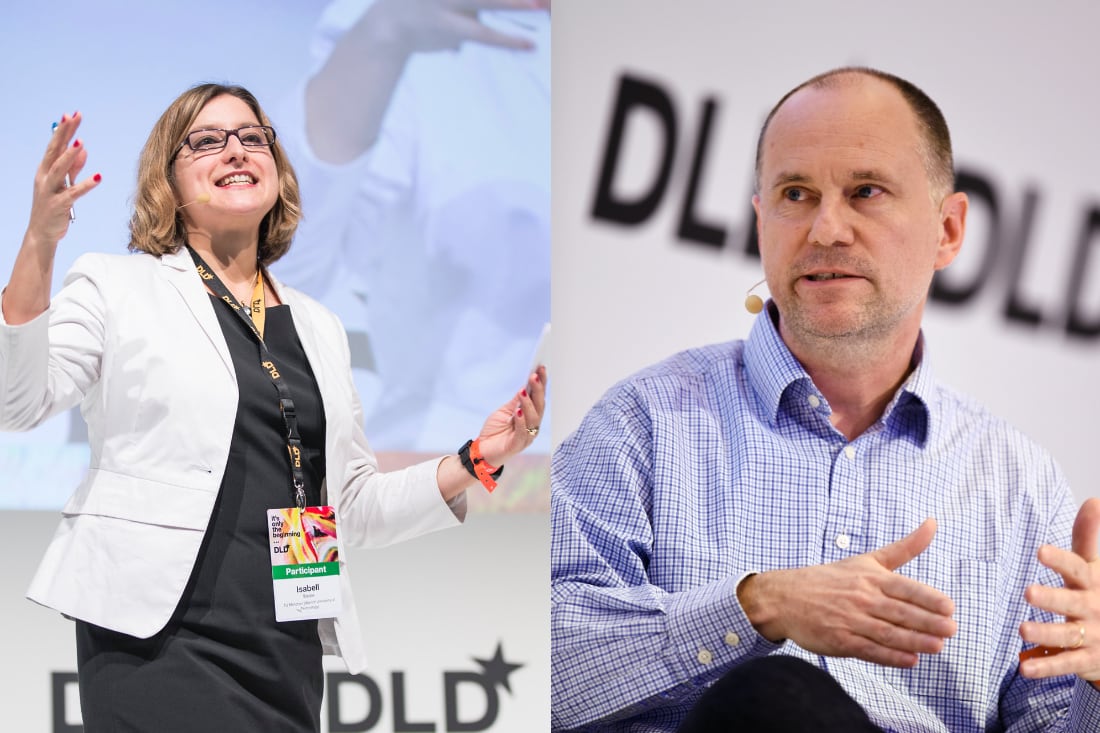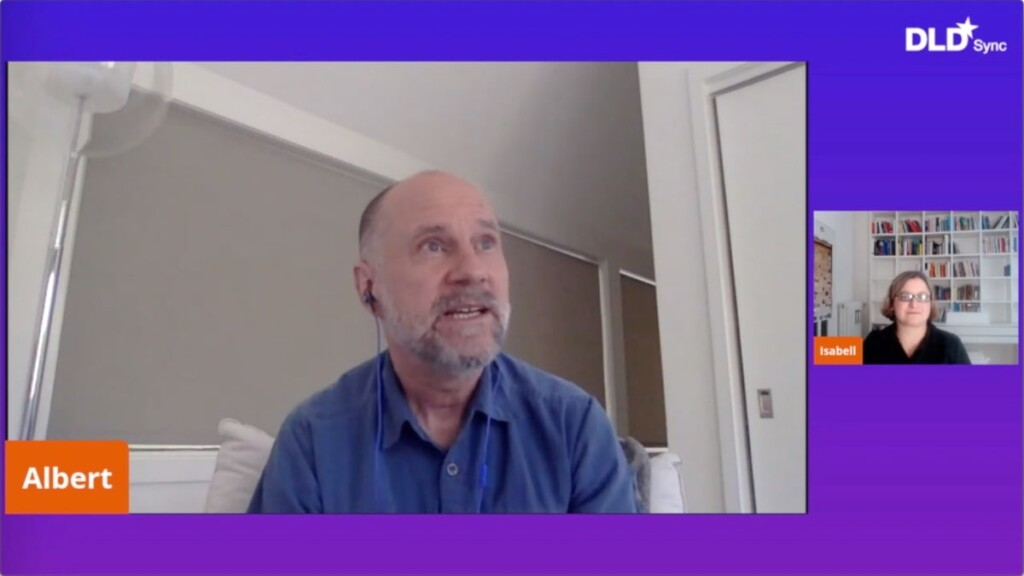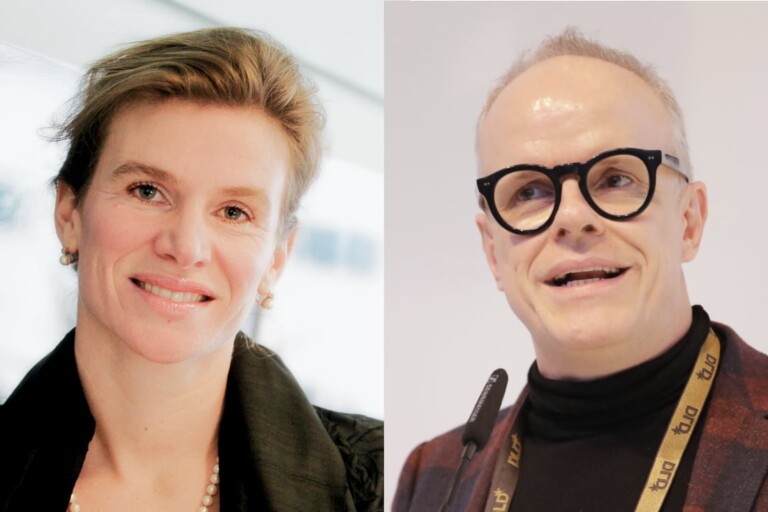
Why Covid-19 Highlights the Limits of Capitalism
The pandemic demonstrates why we cannot put a price on everything. Isabell Welpe and Albert Wenger discuss where markets fail, and what alternatives they see.
What’s the price of a human life? How do markets reward long-term research and prevention – if a payoff for investors may never come? “Obviously this crisis comes at great human cost”, Albert Wenger, managing partner at Union Square Ventures in New York, says with regard to the coronavirus pandemic. “At the same time, this is an opportunity for us. It’s an opportunity to see the limits of capitalism.”
In conversation with Isabell Welpe, Chair for Strategy and Organization at Technische Universität München, Wenger made the case that humanity urgently needs to “leave the industrial age behind and create what I call the knowledge age.” In his vision, much of human attention would be directed toward existential problems like climate change, preventing the next pandemic or detecting asteroids that are on a collision course with Earth.
The discussion – part of the DLD Sync series – spanned across a vast range of topics, from crisis management and consumer power to economic freedom, democracy, social safety and how to finance a potential Universal Basic Income. Excerpts follow below, along with a video recording of the complete session.
Prof. Dr. Isabell M. Welpe holds the Chair for Strategy and Organization at Technical University of Munich. Her expertise includes includes digital transformation of companies, business model innovation, the impact of digital technologies on the economy and organizations and the future of leadership and work/organizational design.
Albert Wenger is Managing Partner at Union Square Ventures. He led the firm’s investments in Etsy, Twilio and MongoDB. Wenger holds a Ph.D. in Information Technology from MIT, is @albertwenger on Twitter, blogs at Continuations and is the author of World After Capital.
Points of Failure
Since the end of the Cold War in the early 1990s, Western-style market capitalism has been the dominant economic model in much of the world. But the success has also exposed capitalism’s weaknesses, Wenger argues. “Over time, the problems that remain are by definition problems that it’s not good at solving.”
In the view of the German-born investor, many of the world’s largest issues today require a different approach because capitalism relies on prices and markets to function properly. “And there are things for which there can’t be markets”, Wenger says. “Exhibit 1 is the pandemic. There’s no price for pandemic preparedness.”
Even the trillions of dollars in losses that the pandemic will likely bring to the global economy won’t suffice as a permanent incentive for preparedness, Wenger believes. “What is the ‘demand mechanism’ by which you establish that you should be stockpiling ventilators or fund fundamental research into new ways of creating vaccines?”, he asked. “It’s crucially important, I believe, that we figure out how we free up more human attention onto non-market related activities.”
Striking A Balance
A baker who sells dry bread will likely go out of business soon because customers stay away – illustrating that “whenever you can measure the quality of something, markets work quite well”, Isabell Welpe pointed out. “But it’s very difficult to judge the quality of ideas or the services that a hospital provides.”
If a hospital does a good job in disease prevention, for example, “you won’t see it”. Universities face a similar conundrum, Welpe said. To prove their merits in a market-based environment, “universities have started to produce quantity instead of quality – because it is of great use to us politically but it’s not of good use for the society that funds us”, Welpe said.
“It’s hard to judge, if not impossible, the quality of groundbreaking research. It’s also hard to judge the quality of good journalism.” Therefore, she concluded, “for some institutions I don’t think capitalism, or the market system, are a very good idea.”

Albert Wenger’s book World After Capital is free to read on the Web.
In the Loop
Most people work to earn a living, spending money that keeps the economy going, Albert Wenger observed. “In my book, World After Capital, I call this the ‘job loop’”, he said. “Lots of human attention is caught up in making stuff, getting paid for that and then immediately turning around and consuming.”
You might expect a venture capitalist to be quite happy with this system, but Wenger sees enormous downsides. For one, it leads to overconsumption, encouraging people to buy “ever more stuff that they don’t really need” – depleting resources and fuelling climate change through globalized supply chains. In addition, Wenger argues, people are forced to spend time and attention on tasks that bring neither them nor society forward.
“There are all these large-scale threats” like pandemics, climate change or asteroids that could collide with Earth, but they’re largely overlooked by societies focused on economic growth and consumption, Wenger believes. “The amount of attention, collectively, that we’re allocating to these [threats] is completely out of whack with their relative importance”, he said. “For human attention, we really should try to get away from market-based approaches.”
Wenger has been advocating a Universal Basic Income for years, suggesting that it would allow people to concentrate on more useful tasks and make society more resilient. Increasing automation will help to finance this kind of government support, Wenger told the DLD Sync audience, and suggested that the idea may not be as revolutionary as it sounds. “You’re still creating the same amount of money. It just enters the economy in a different spot.”
Instead of central banks lending money to other banks, “you give the money to the people, and they will spend it”, Wenger said. “We can have trickle-up economics.”
Give Chance A Chance
To foster more long-term thinking, democracy itself may need a makeover, Isabell Welpe suggested. “Democracy, where the majority wins, is also a system where minorities can get run over. And entrepreneurs can be a minority, climate activists can be a minority.”
An alternative to a simple “yes” or “no” vote could be a system that allows voters to indicate how important an issue is to them, Welpe said. She also proposed introducing an element of randomness to improve equality and innovation. “Chance – throwing dice, basically – can be a good governance system, because it’s the only unbiased system”, Welpe explained. “It’s the only system where you give ideas a chance that wouldn’t have a chance otherwise.”
A New Age
Will the world really be open to new ideas, driven by a need for change in the aftermath of the pandemic? Or will the urge prevail to go back to business as usual? “Clearly the transition from the agrarian age to the industrial age was awful”, Albert Wenger observed, pointing to social upheaval and world wars. “We certainly don’t want to repeat that.”
But trying to continue as before is not an option either, he believes, largely because of a man-made natural catastrophe. “The climate crisis is the most likely forcing function”, Wenger said, “and the question is whether we will get on top of it this time or whether we will get cataclysmic change yet again.”
The coronavirus pandemic might actually prove helpful in this respect by highlighting shortcomings of capitalism “in a compressed crisis while we’re going through a slow-motion crisis at the same time, which is the climate crisis”, Wenger noted.
One immediate shift in the economy that he expects to see is a return to regional production thanks to 3D printing and additive manufacturing. “Today there are a lot of things where it doesn’t make sense at all anymore to produce them halfway around the world and then ship them”, Wenger said. “Instead you can reshore and bring back the production, and I think we’re going to see a lot more of that.”
Looking ahead, he said his hope was that a few decades from now “we will look back to 2020 and we’ll go, ‘Oh, 80 plus percent of human activity was caught up in the market!’ And only 20 percent was dedicated to arts and science and other activities like maintaining the environment.”
This would seem as alien to our future selves as the idea today that more than 80 percent of the jobs were once dedicated to farming – a sector of the economy that now employs less than 5 percent of workers in many industrial nations. “We’ve done this before”, Wenger said, “and we can do it again. We just need to have the vision and the willingness to do it.”


